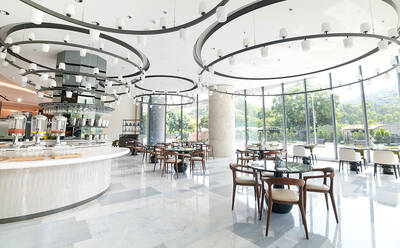Chinese practice
既往不咎
(ji4 wang3 bu2 jiu4)

Photo: Wikimedia Commons
照片:維基共享資源
to forget and not bear recriminations
英文形容詞「bygone」是由一個過去分詞(gone)和一個介詞(by)所組成的,如同「aforesaid」的構字一樣。「aforesaid」(前述)意為「先前已談到的」,「bygone」意為「已經過去的」。雖然「bygone」一字現已很少用,但仍見於「bygone days」(過去的日子)或「a bygone era」(過去的時代)等片語中。
「bygone」這形容詞曾被當做名詞來用,例如「a bygone」(過去的事)。雖然這個字的意義原本純為中性的,但後來在指過去的事或情況時,多少暗示了這些過去的事是負面的,例如「let bygones be bygones」這個片語:讓我們之間的不愉快成為過去吧。「bygone」一字作名詞用可追溯至一五六○年代。
孔子(西元前五五一~四七九年)肯定沒有迴避過去,或暗示要忽略過去。實際上,他大部分的思想都是基於對回歸西周早期黃金時代的想望──這是周文王、武王、周公等聖賢治理下的時代。然而,孔子也勸誡人們,不要對未知或過去不可考的事物加以詮釋。
《論語》的〈八佾〉篇說到,魯哀公向孔子的學生宰我詢問,供奉土地神的神龕應該要用什麼木材來做比較好。宰我回答說,在夏朝是用松木,商朝用柏木,而周朝則用栗木。當時,栗樹「栗」字也用在「戰栗」一詞,意為「顫抖」。宰我補充說,「曰使民戰栗」(據說這是要使人民害怕顫抖)。孔子聽聞此事,便說:「成事不說,遂事不諫,既往不咎」(過去已做的事不該再試圖解釋,已經做了的事不必再挽救,已經過去的事也不該再強加詮釋)。成語「既往不咎」即源於此,意為過去的事被原諒、免去其罪。換句話說,如同上述英文片語「let bygones be bygones」,「既往不咎」所指的過去的事,亦含有某種不幸的事件、不愉快或犯罪之意。
後世文學中使用這成語的例子,可見於明清時期編纂的小說《東周列國志》──在第三十五章中,晉懷公向跟隨他伯父重耳公子流亡國外的前臣發出最後通牒,說若他們在三個月內回國,則「仍復舊職,既往不咎」(仍舊恢復他們以前的職位,過去的事就會算了,不再追究)。
(台北時報林俐凱譯)
這法規在詮釋上有很多問題,主管機關應修法,將規定釐清,讓人有所依循,並對過去的違法情事既往不咎。
(There are problems with the interpretation of this law. The competent authorities should amend it, to clarify it and make it easier to comply with, and past violations should be considered null and void.)
你們既然決定要結婚,過去的事就該既往不咎,別再舊事重提、傷害彼此感情。
(Since the two of you are to be married, you must let bygones be bygones. Do not rake through the past, it will harm your relationship.)
英文練習
let bygones be bygones
The word “bygone” is an adjective formed of a past participle and preposition, in the same way the word “aforesaid” is. Where “aforesaid” means “that which was said before,” “bygone” means “that which has gone by.” Although the word has mostly fallen into disuse, it still appears in phrases such as “bygone days” or “a bygone era.”
The adjective was once also used in noun form, as “a bygone.” While this was originally purely neutral, it was later to suggest the past events or situation to which it was referring were somehow negative. It is in this sense that it is used in the phrase “let bygones be bygones”: Let the unpleasantness between us be something of the past. The noun dates from the 1560s.
The ancient Chinese philosopher Confucius (551-479BC) certainly did not eschew the past, or even suggest that we disregard it. In fact, much of his philosophy was based upon his aspiration for a return to a golden age of governance by the sagely rulers — King Wen, King Wu and the Duke of Zhou — that governed during the very early years of the Zhou Dynasty. He did, however, counsel against assuming interpretations of things which were unknowable or lost in the midst of time.
The ba yi chapter of the Analects relates the story of how Duke Ai of the State of Lu asked one of Confucius’ students, Zai Wo, about the materials used for the construction of the altars of the spirits of the land. Zai Wo replied that in the Xia Dynasty they used pine; in the Shang the cypress; and in the Zhou the wood of the chestnut tree. At the time, the Chinese character for the chestnut tree, 栗 li, was also used in the word 戰栗 zhan li, meaning “to tremble.” Zao Wo then added 曰使民戰栗: “It is said this was done to inspire awe in the people.” On hearing this, Confucius said 成事不說,遂事不諫,既往不咎 (one should not attempt to interpret that which has passed, nor seek remedies for that which is done, nor should one try to read into what is now past). From this, we get the idiom 既往不咎, meaning to forgive and not bear recriminations. In other words, as in the aforesaid English phrase, the implication is that the bygone matter is some form of unfortunate event, unpleasantness or offence.
An example of how the idiom was used in later literature can be found in the novel Chronicles of the Eastern Zhou Kingdoms, compiled in the Ming and Qing dynasties. In Chapter 35, Duke Huai, the ruler of the state of Jin, issued an ultimatum to former Jin officials who had followed his uncle, Prince Chong E, into exile. The ruler assured them that if they returned within three months, 仍復舊職,既往不咎 (they could resume their former positions, and he would let bygones be bygones).
(Paul Cooper, Taipei Times)
Can’t you two just put your differences aside and let bygones be bygones?
(你們兩個難道不能拋開歧見、既往不咎嗎?)
In the end, they decided to let bygones be bygones and shook hands.
(最後,他們決定既往不咎,握手言和。)

A: In your view, what are Taipei’s top buffet restaurants? B: Feastogether Group’s outlets — A Joy, Inparadise, Eatogether, Sunrise and Fruitful Food — are the runners-up. A: A Joy’s deluxe meal, priced at NT$3,880 per person plus a 10-percent service charge, is the most expensive of its kind. B: My No. 1 goes to Hi-Lai Group’s outlets — including Island and Hi-Lai Harbour. A: I feel like I’ve gained 3 kilograms just from hearing all the options. A: 你心目中最強的吃到飽餐廳是? B: 亞軍是饗賓集團的吃到飽品牌︰饗、饗饗、饗食天堂、旭集、果然匯。 A: 饗每人高達3,880台幣加一成,是全台最貴的吃到飽! B: 冠軍則是漢來集團旗下的品牌︰島語、漢來海港。 A: 哈聽到這麼多吃到飽,我感覺又胖了3公斤。 (By Eddy Chang, Taipei Times/台北時報張迪)

As summer approaches, people everywhere start enjoying frozen treats, especially the increasingly popular “gelato.” This Italian-style ice cream features vibrant colors and intense flavors. Made primarily with milk and often featuring seasonal fruits, gelato has a lower fat content of 4–8 percent compared with ice cream’s 10–14 percent. These ingredients ensure each spoonful is fresh and flavorful. The magic of gelato also lies in its texture and density. Unlike ice cream, which is stirred faster and harder, gelato is blended slowly by craftsmen. This process introduces less air into the mix, thus creating a creamy texture that is denser and smoother

★ Bilingual Story is a fictionalized account. 雙語故事部分內容純屬虛構。 Uneasy voices started to ripple through the lines of anxious students outside the school gate. “No signal?” “VPN’s down too.” “Wait — is this a cyberattack?” Nothing loaded on Jun’s phone either. Not his AI tutor, Echo. Not any app. Not even the Internet. Jun stood shoulder to shoulder with hundreds of other students outside the school gate. It was national exam day and the early July air was thick with heat and now charged with anxiety. The scene of everyone’s head hunched over their phones, cramming vocab,

A: In recent years, all-you-can-eat buffet restaurants have become the highest growing dining sector. What are some of the best buffets in Taipei? B: In my opinion, No. 10 to No. 7 are: Renaissance Taipei Shihlin Hotel’s Shihlin Kitchen, Denwell Group’s Feng Food, Grand Mayfull Hotel Taipei’s Palette and Shin Yeh Group’s Nagomi. A: The all-you-can-eat Japanese Wagyu beef at Shihlin Kitchen is superb. B: No. 6 to No. 3 are the “Big Four:” Sheraton Grand Taipei Hotel’s Kitchen 12, Grand Hyatt Taipei’s The Cafe, Regent Taipei’s Brasserie and Le Meridien Taipei’s Discovery Kitchen. A: Wow, all four